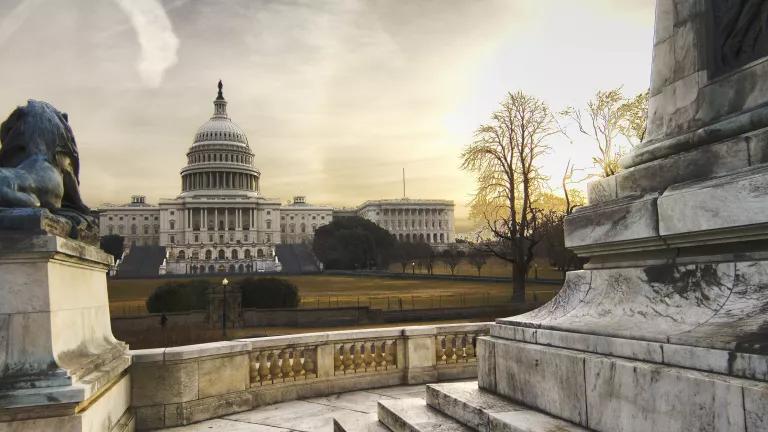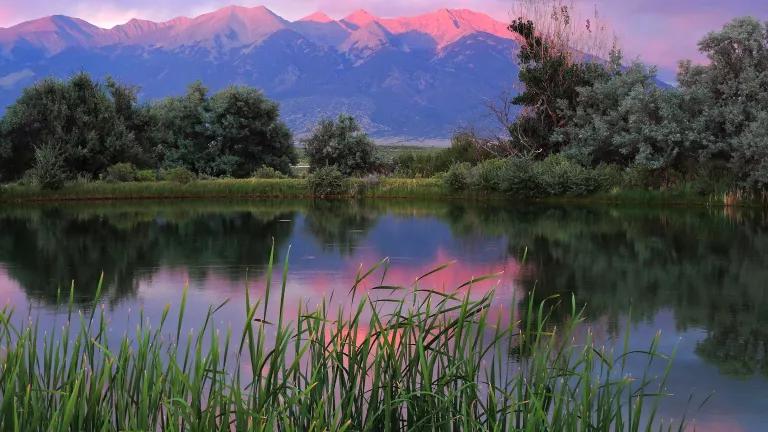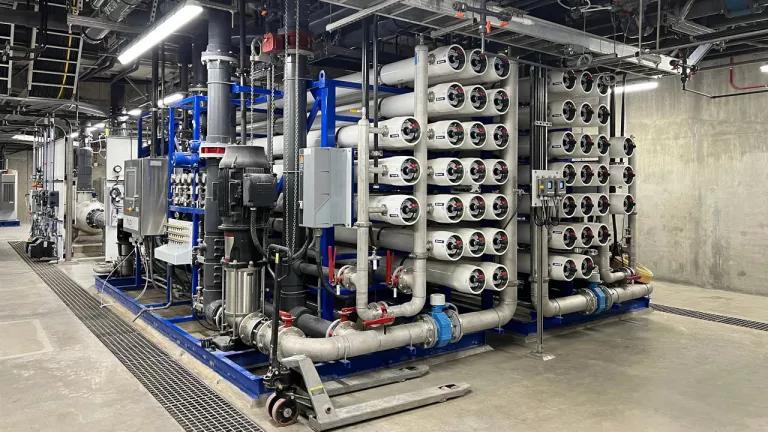It’s Time to Build a Stronger America, Together

This post was co-authored with Rep. A. Donald McEachin (D-VA-04), co-chair and co-founder of the United for Climate and Environmental Justice Task Force.
Our nation desperately needs massive new investments in transit and housing, water pipelines and wastewater networks, jobs and greater access to economic opportunity—issues highlighted by the disparate groups that recently came together with shared goals for Infrastructure Week.
We could have simply talked about what our so-called “Builder President” has failed to achieve, but we must do more than criticize. We are here to offer better ideas for a 21st century infrastructure upgrade that will make our country more resilient for all Americans—no matter their ZIP code.
Done right, infrastructure investments can fuel an economy-wide renaissance that generates well-paying jobs right away and strengthens our economy for the long haul. They can make our communities more livable and expand opportunity for all people. They can create a more sustainable future for our children. They can help us build a more equitable society.
Over the past century, however, infrastructure projects have too often had a disastrous impact on community life, public health, and our environment. Building polluting power plants, factories, and landfills close to residential areas has caused permanent health effects such as asthma, heart disease, and premature death. Shortsighted developments have lowered the quality of life in countless communities, or destroyed those neighborhoods entirely. And for decades, these consequences have disproportionately impacted low-income families and communities of color. We can see the effects in cities like Richmond, Virginia, where largely African-American neighborhoods were bulldozed to make way for what is now I-95.
Ignoring the lessons of the past, the Trump administration and its allies in Congress have worked to short-circuit existing public and environmental reviews designed to ensure infrastructure is built responsibly. Removing these safeguards would reduce the opportunity for meaningful engagement by residents in the decisions and projects that directly affect them and that will define their communities—and our environment—for decades to come. In light of that record, we fear any infrastructure plan from this administration and its allies will compound, not correct, our long history of environmental injustice.
Infrastructure must be planned and executed in ways that respect residents and our environment. Care and attention during the planning phase will improve our transportation system, access to power and energy, and economic mobility. American communities will become more resilient, and more hardworking people will have the well-paying jobs they need to provide for their families. A well-rounded approach to infrastructure planning will improve health and help address inequities such as income disparity, systemic racial segregation, and poverty.
One thing we have learned from our past mistakes is that people of all communities need a voice in deciding what we build and how we do it. That is the best way to proceed in building the kind of 21st century infrastructure we all need to thrive.



